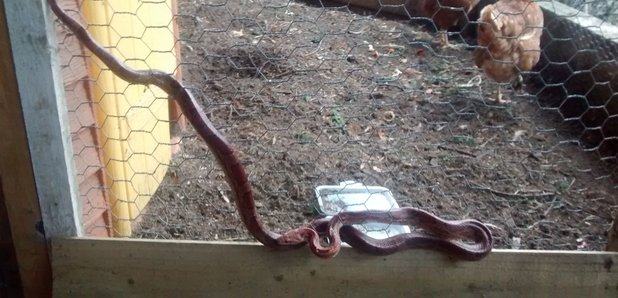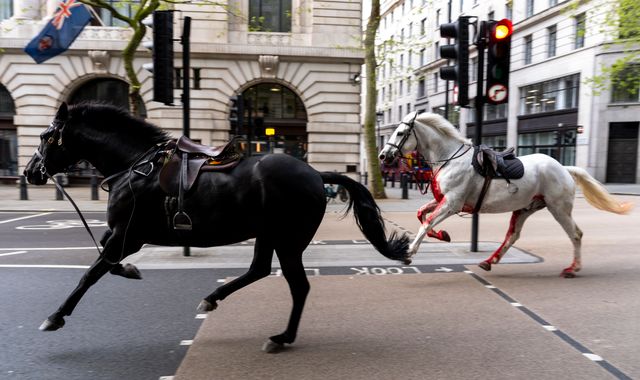Exotic pets being abandoned in Gloucestershire
25 April 2019, 09:12

New figures show the RSPCA received more than 170 calls about neglected, abandoned and stray exotic animals last year in Gloucestershire.
The charity believes the reason behind some of the suffering of these exotics pets is that owners do not research their needs using expert sources and don't understand the type and amount of care that they need, resulting in them escaping, being abandoned or neglected.
Scientifically-based expert care information for exotic animals can be hard to find and an inexperienced owner may not be able to tell the difference between quality and inaccurate care information.
RSPCA animal welfare officer Steve Davies was called to a collection of a snake in the Saintbridge area of Gloucester in February 2018.
It was found by a member of public entwined in the mesh of their chicken coop. With a bit of maneuvering, Steve managed to untangle the unharmed corn snake and took it to a place of safety.
In October 2018, a holidaymaker returned home with more than just memories and souvenirs when they discovered a gecko in their suitcase after returning to Gloucestershire from Cape Verde.
RSPCA animal collection officer Richard Carr, who was called to help after the small lizard was found in luggage while unpacking 3,000 miles later, said: "We hope this highlights to people how important it is to thoroughly check and recheck luggage including clothes, shoes, towels and bags before leaving holiday destinations to avoid bringing back an unexpected stowaway."
Stephanie Jayson, RSPCA's senior scientific officer in exotics and qualified exotics vet, said: "Although their numbers are small compared to more common pets, we have real concerns about the welfare of reptiles and other exotic animals kept as pets in this country.
"Reptiles and other exotic pets are completely reliant on their owners to meet their welfare needs including requiring the correct levels of heat, light and humidity, plus an appropriate diet. Some species can grow very large, live for a long time or require a licence or paperwork to be legally kept or sold. Many of the animals we're called to help are found stray outside, where they can very quickly suffer in the cold.
"These animals are commonly found for sale in pet shops and are advertised online.In the past, animals have often been handed over to buyers with little or no information about how to care for them properly, although new regulations in England should improve this. In some cases, we believe owners take them on simply because they believe they will be easier to care for than other pets, but it is essential that people research what is required in the care of their pet, including food, equipment, environment and vet care, before taking one on. We would also urge them to ask for help if they're struggling to meet their needs.
"We believe that people may buy them with little idea of how difficult they can be to keep and the animals are sometimes neglected when the novelty wears off and the commitment hits home. This is why we would encourage anyone thinking of getting an exotic pet to find out as much as possible about the animal's needs and whether they're the right pet for them."
Find out more here.

























